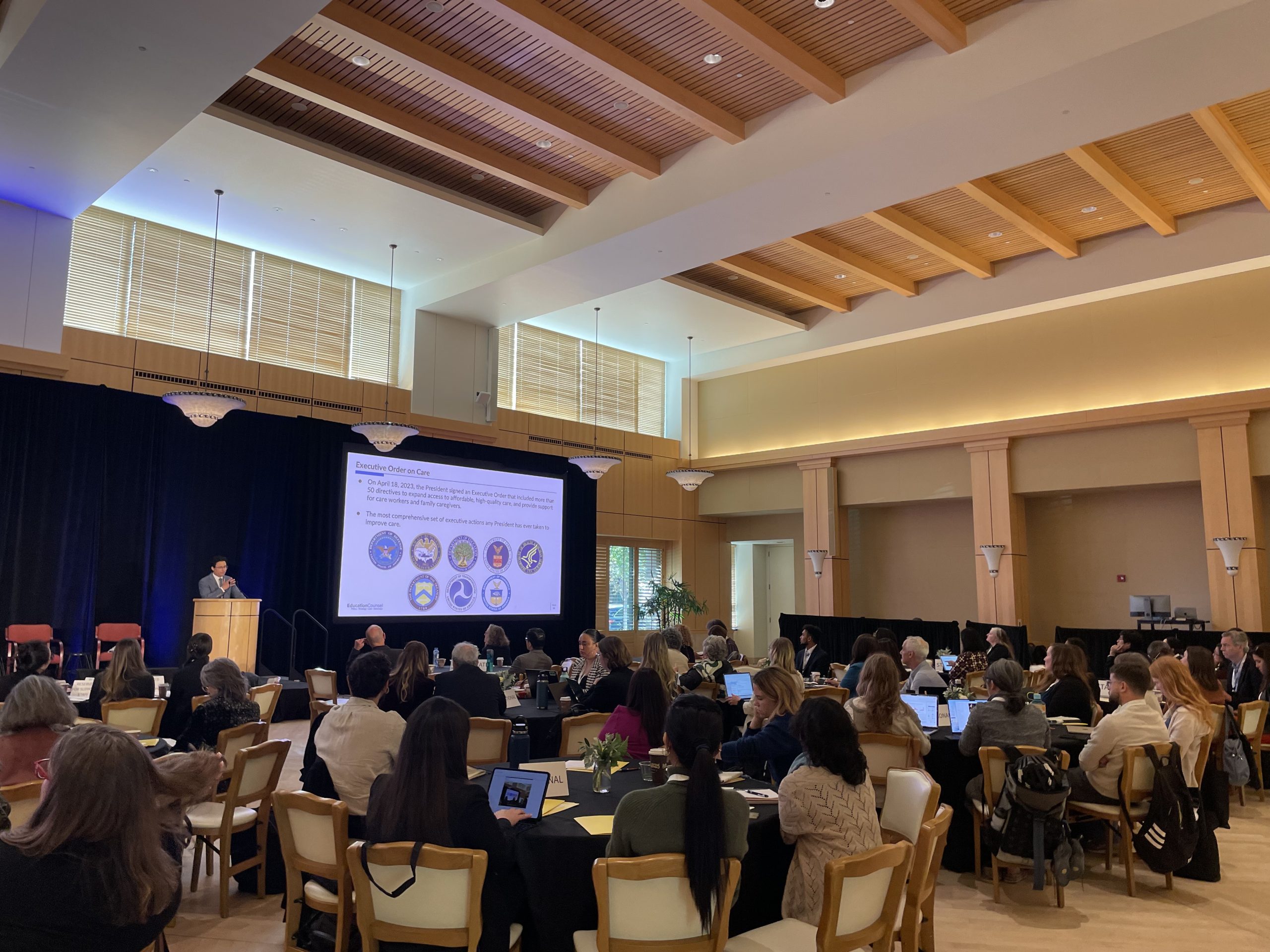
Stanford University researchers are hoping their findings on how the well-being of young children and their caregivers suffer when critical federal relief programs are defunded can influence state and local officials to make policy changes to help U.S. families. In fact, one expert calls the current chaos and cuts at the federal level by the Department of Government Efficiency the largest crisis in the country since the COVID-19 pandemic hit.
On Thursday, April 10, the Stanford Center on Early Childhood’s RAPID Survey Project, celebrated its five-year anniversary by hosting a conference to look back on the work it’s done and to consider how to best move forward during a volatile time.
Phil Fisher, lead investigator for the project and a professor in the Graduate School of Education at Stanford, said that, for example, $1 billion in cuts to federal food programming that help food banks distribute healthy, local food is impacting families. Threats to free school lunch programs could also lead to increased hunger among youth, he said.
“What’s the ceiling on hardship?” said Fisher. “A lot of people are on the margins of poverty. … We’re just starting to see an uptick in rates of hardship.” He also noted that tariffs could increase the price of consumer products, further putting families in peril.
Elimination of a federal program that helps 6.2 million low-income American households pay for utilities — water, electricity and gas — could also be a major hit to these families. When families cut costs, they stop paying their utilities first and hope that they don’t get shut off, he said.
Other federal programs potentially on the chopping block are Medicaid, Head Start early childhood programs and the Supplemental Nutrition Assistance Program, which helps low-income families to supplement their grocery budget so they can afford nutritious food.
RAPID researchers have collected data from 22,000 households around the country with children under the age of 5, along with data from childcare providers, to inform early childhood programs, policies and investments across the state since the project’s inception.
RAPID data from 2024 shows that when federal relief programs were in place, parents of young children reported lower rates of overall hardship — hunger, and difficulty paying for utilities, child care, health care, activities that support well-being (like counseling) and housing. When the policies ended, hardship rates began to increase.
For example, a 2021 federal child tax credit provided additional funds to families with young children during the pandemic. When this ended, survey results show that hardship increased (one in four U.S. families could not afford to pay for their basic needs when the policy was in place versus one in three as of 2025).
“We know policy can make a difference,” Fisher told this news organization. He said there are opportunities for local governments to pass local levies and states to approve block grants to help compensate for federal funding cuts.
When Fisher started the RAPID Survey Project in April 2020 while employed by the University of Oregon as a response to the COVID-19 pandemic, he noted that relief funds were designed strictly to keep businesses afloat while lockdowns shut child care facilities. This meant the government might have helped pay for a child care center’s rent and increased cleaning supply needs, but didn’t cover workers’ home rental costs, food costs or utilities.
Fisher noted that after a conversation with former Oregon Gov. Kate Brown in which he showed survey data showing the gap in needs for child care workers, Brown was receptive and expanded the relief funds to cover any basic needs for workers.
“It was not just a business problem,” said Fisher. “It was human livelihoods. … We couldn’t sit idly. We needed to take action — what we could do was bring the voices of children into public light and help people feel less isolated.”
The Trump administration’s increase in deportations could also have ramifications on the child care providers, noted Mario Cardona, a partner at education consulting firm EducationCounsel, during the conference. Cardona served as a senior adviser for Early Childhood Development & Education for the White House Domestic Policy Council, where he played a role in shaping and executing former President Joe Biden’s early childhood agenda. As of 2021, an estimated 142,000 undocumented immigrants serve as childcare workers, personal care aides, and home health aides.
Fisher noted during a presentation at the conference that “child care in this country is in a freefall” and “has been for a number of years.”
“People we are entrusting to take care of our children are skipping meals, worried about being evicted, skipping medical care,” he noted. “It’s questionable if we as a society think that’s a good arrangement.”
For more on the Rapid Survey, go to rapidsurveyproject.com.

